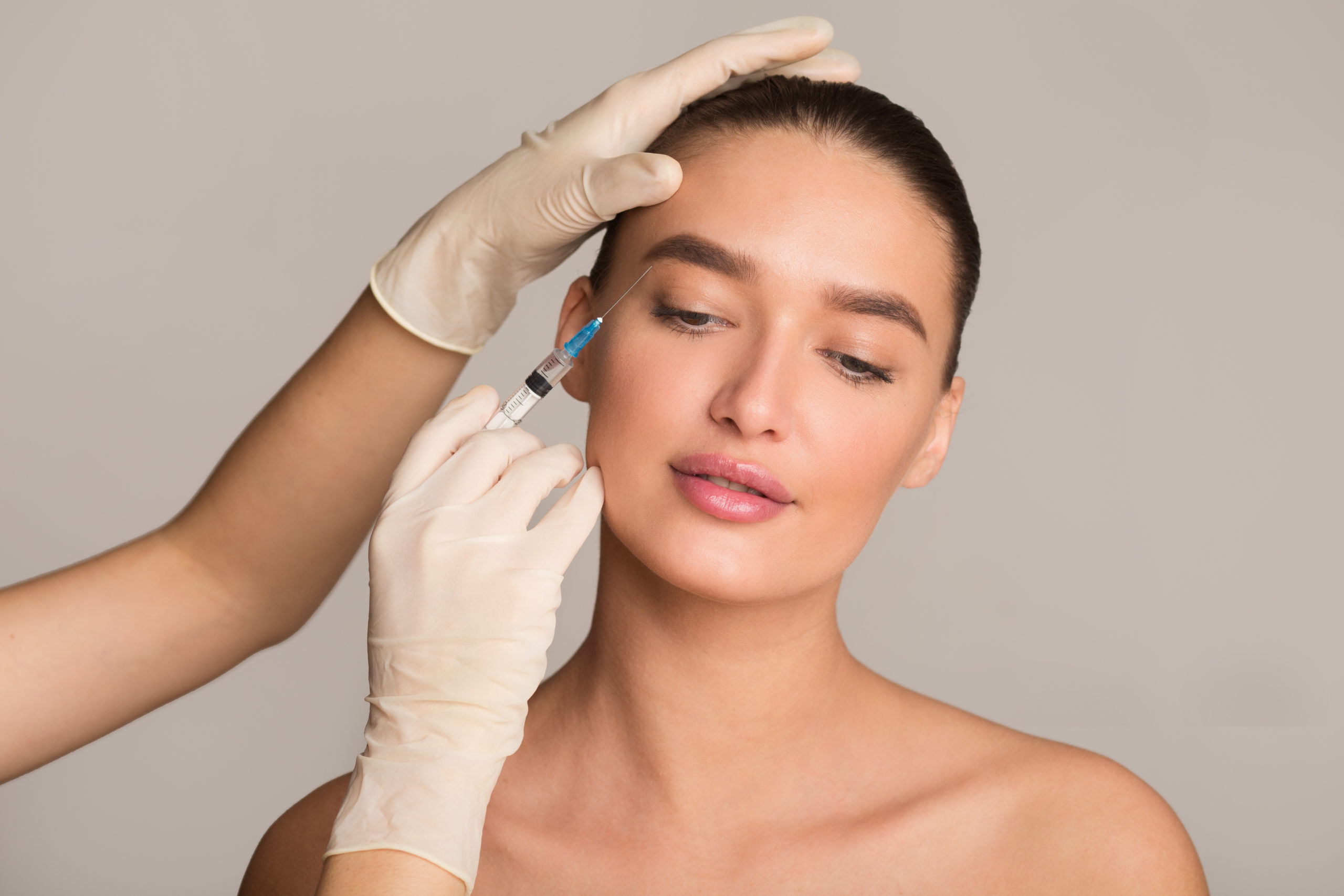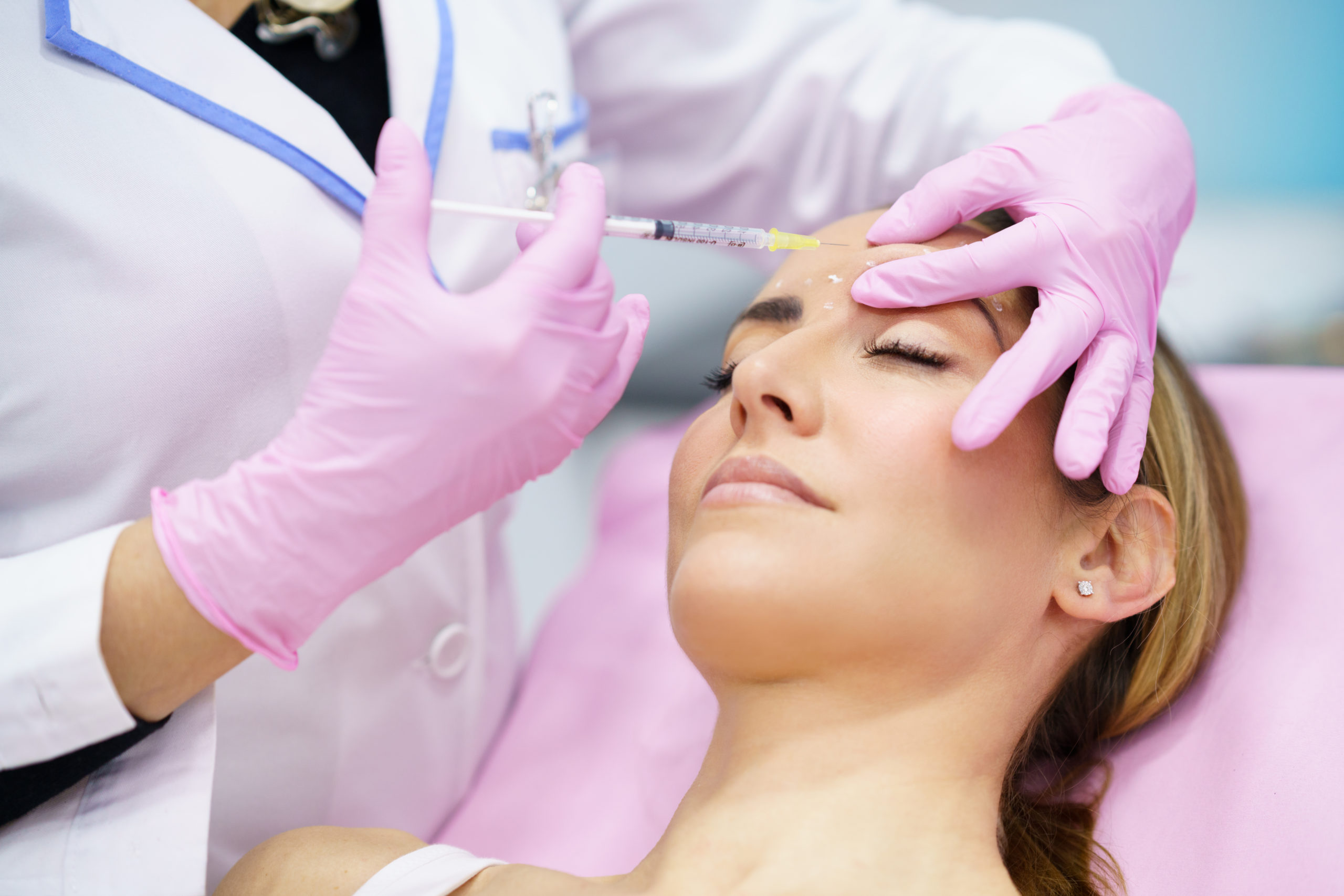Are There Any Side Effects From Getting BOTOX Treatments?
No matter how diligent your skincare routine, the signs of time are bound to show up on your face eventually. Fortunately, science has provided us with some non-invasive treatments that can quickly erase the signs of aging.
One such treatment is BOTOX®.
There’s been a lot written about the benefits of BOTOX® cosmetics, but what about the side effects and risks? Before you book an appointment for BOTOX® injections, here’s some information about what to expect during and after your treatment.
What is BOTOX?
BOTOX® is an injectable wrinkle treatment that’s produced by removing the purified protein from the bacterium Clostridium botulinum, or C.botulinum. The protein is then combined with other ingredients and reconstituted in a clinical setting with saline solution and injected in targeted areas.
It was originally indicated as a treatment for muscle spasms around the eyes when the first side effect was discovered: the treatment also caused a reduction in the appearance of crow’s feet. Since then, BOTOX® has been used to address a range of aesthetic and medical concerns. It is currently approved by the FDA to treat facial lines, migraines, and other medical conditions.
Wrinkle reduction is the result of relaxation of the underlying muscles, which causes a softening of the features near the injection site. Consider the way your forehead crinkles when you contract the muscles in a frown and then smooths again when you relax.
BOTOX® simply makes that relaxation affect a long-term feature. Injections last for about 3 – 12 months, depending on the quality of treatment.
How Does BOTOX Work?
BOTOX® works by interrupting the release of chemicals in the nerves that control muscle contractions. This makes it ideal for managing several conditions that involve involuntary muscle contractions, such as:
- Excessive sweating or drooling
- Overactive bladders
- Migraine headaches
A doctor or clinician simply injects small amounts of the reconstituted protein into the muscles surrounding the affected area. Each treatment takes about 30 minutes, and results are apparent within a short time after.
The results last for several months, so repeat treatments are necessary up to three times per year. However, there is no lasting damage from BOTOX® treatment, and missing a treatment will not accelerate the appearance of wrinkles and creases. A short time after the BOTOX® wears off, your appearance will simply return to the same state as before BOTOX®.
The Side Effects of Cosmetic BOTOX Treatments

Any time you apply something on or under the skin, there are going to be some side effects. Most of these are mild and will disappear within a short time after treatment. Others are can be serious, but they are usually related to underlying medical conditions or allergic reactions. Serious side effects are very uncommon.
Common Side Effects
Side effects of BOTOX® depend on the type of treatment. When used for medical purposes, mild flu-like symptoms and muscle weakness are common. BOTOX® for cosmetic use is generally milder and more localized in its application.
The most common side effect of BOTOX® cosmetic injections is redness or swelling at the injection site. You might also experience mild pain and/or bruising in the treatment area. These symptoms can usually be treated with ice or an over-the-counter pain reliever and will disappear within hours.
Other side effects include:
- Dizziness
- Difficulty swallowing
- Headache
- Double vision
- Drooping of swelling of the eyelid
- Dry eye
- Excessive tearing
There is also a very slight chance that the BOTOX® could migrate beyond the treatment area. That can be avoided as long as you don’t rub, massage, or otherwise aggravate the injection site. If any of the side effects worsen or last for longer than a day, you should see your doctor immediately.
Serious Side Effects
Some side effects of BOTOX® can be severe, but these are rare. The most common of these is an allergic reaction. You should seek medical treatment immediately if you experience symptoms such as:
- Hives or rash
- Swollen lips, throat, or tongue
- Itching, especially at the injection site or in the throat
- Severe dizziness
- Respiratory distress
Most symptoms and side effects can be treated in the same way as any other allergic reaction, but it’s still important to be evaluated by a medical professional if you have any symptoms that last for longer than 24 hours or increase in intensity.
Who SHOULDN’T Take BOTOX Treatments?

Since the discovery of BOTOX® as an anti-aging treatment, it has become quite popular. After all, it’s quick, painless, and very effective. There are no regimens to follow or creams and pills involved. You simply pop into your local MedSpa for half an hour and come out looking more rested, refreshed, and youthful.
However, this is not a solution for everyone. It has no effect on those without facial lines and creases, except to reduce the expression of emotion on their faces. That means it’s not effective as a proactive measure or preventative anti-aging treatment.
BOTOX® is bad for people who are allergic to any of the substances involved in formulating or reconstituting injections. You should also avoid BOTOX® if:
- You’re pregnant or breastfeeding
- You have a neuromuscular condition like ALS or Lambert-Eaton syndrome
- You’ve had an adverse reaction to BOTOX® or any of its ingredients in the past
- You’re allergic to the protein in cow’s milk
You should avoid receiving treatments from someone who’s unqualified or getting repeated BOTOX® injections too close together.
Drug Interactions
Although this is a less serious problem, BOTOX® could interfere with some medications. These include drugs to treat myasthenia gravis, certain antibiotics, anticoagulants like warfarin, and some drugs used to treat Alzheimer’s. You can find a list of possible BOTOX® drug interactions and their severity here.
It’s more important that you continue your full course of medications and postpone your BOTOX® injections after they’re out of your system. If you’re taking medications for maintenance or a chronic condition, consult with your doctor or pharmacist before scheduling BOTOX® treatment.
Ready to Put Your Best Face Forward?
Your state of mind has a lot to do with the results of any treatment. Knowing how BOTOX® works and the possible side effects should put your mind at ease about the safety and effectiveness of this popular anti-aging treatment.
Give us a call at (720) 499-6460 or visit our website to book an appointment for BOTOX® treatment today.
